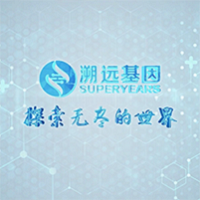
Privacy statement: Your privacy is very important to Us. Our company promises not to disclose your personal information to any external company with out your explicit permission.

When choosing a fragment analysis Genetic Analyzer sequencer for a dedicated laboratory, several factors should be considered to ensure the instrument meets the specific needs of the laboratory and research goals. Here are some key considerations:
1. Throughput: Evaluate the expected sample volume and throughput requirements. Choose a sequencer that can accommodate the anticipated workload and processing speed, ensuring it aligns with the laboratory's capacity.
2. Application Versatility: Consider the range of applications the sequencer supports, such as genotyping, microsatellite analysis, mutation detection, DNA sequencing, or other specific fragment analysis needs relevant to the laboratory’s research interests. Ensure the instrument's capability matches the intended applications.
3. Sensitivity and Resolution: Assess the sensitivity and resolution of the sequencer's detection system, particularly the fluorescence detection sensitivity for accurately detecting labeled DNA fragments, even at low concentrations.
4. Automation and Workflow Integration: Look for sequencers with automated features for sample loading, running, and data analysis to streamline the workflow and minimize manual handling. Additionally, consider how well the sequencer integrates with other laboratory equipment and software systems, including laboratory information management systems (LIMS).
5. Data Analysis and Interpretation: Evaluate the accompanying software for data analysis, interpretation, and compatibility with existing bioinformatics tools used in the laboratory. The software should provide efficient data handling and robust analysis capabilities.
6. Instrument Reliability and Support: Consider the reputation of the PCR System sequencer's manufacturer for instrument reliability, service support, and availability of technical assistance, including maintenance and upgrades.
7. Scalability: Assess the sequencer's scalability to accommodate potential future expansion or changes in research needs. A versatile platform that allows for future upgrades or additional applications can be beneficial.
8. Cost and Budget: Evaluate the total cost of ownership, including instrument acquisition, consumables, maintenance, and ongoing operational costs. Choose a sequencer that aligns with the laboratory's budget while meeting its performance requirements.
9. User Training and Support: Consider the availability of user training programs and technical support to ensure laboratory staff can effectively operate and maintain the sequencer.
10. Regulatory Compliance: Ensure that the selected sequencer meets relevant regulatory and quality standards applicable to the laboratory’s research, especially for clinical or diagnostic applications.
By carefully considering these factors and conducting thorough evaluations, the laboratory can select a fragment analysis gene sequencer that best fits its specific research needs and operational requirements. Additionally, consulting with other researchers and reviewing literature on sequencer performance can provide valuable insights during the selection process.
December 23, 2021
May 02, 2022
April 23, 2024
April 23, 2024
Real-Time PCR Instrument Display The specifications of a Thermal Cycler Real Time PCR System Machine can vary depending on the model and manufacturer. Here are some common specifications you might...
Real-Time PCR Instrument Display A Thermal Cycler Real Time PCR System machine, also known as a real-time PCR thermal cycler or qPCR (quantitative PCR) machine, is a device used in molecular biology...
Real-Time PCR Instrument Display Choosing the right Thermal Cycler Real Time PCR System machine is crucial for the success of your experiments. Here are some key factors to consider when selecting a...
Real-Time PCR Instrument Display Thermal Cycler Real Time PCR System machines are sophisticated instruments that offer a range of features and capabilities essential for performing real-time...
Email to this supplier
December 23, 2021
May 02, 2022
April 23, 2024
April 23, 2024
Send Inquiry

Mr. Mr. Léi
Tel:0086-025-57561788
Fax:
Mobile Phone:+8617353779332
Email:wanglei@superyears.com
Address:Nanjing, Jiangsu
Related Products List
Mobile Site


Privacy statement: Your privacy is very important to Us. Our company promises not to disclose your personal information to any external company with out your explicit permission.

Fill in more information so that we can get in touch with you faster
Privacy statement: Your privacy is very important to Us. Our company promises not to disclose your personal information to any external company with out your explicit permission.